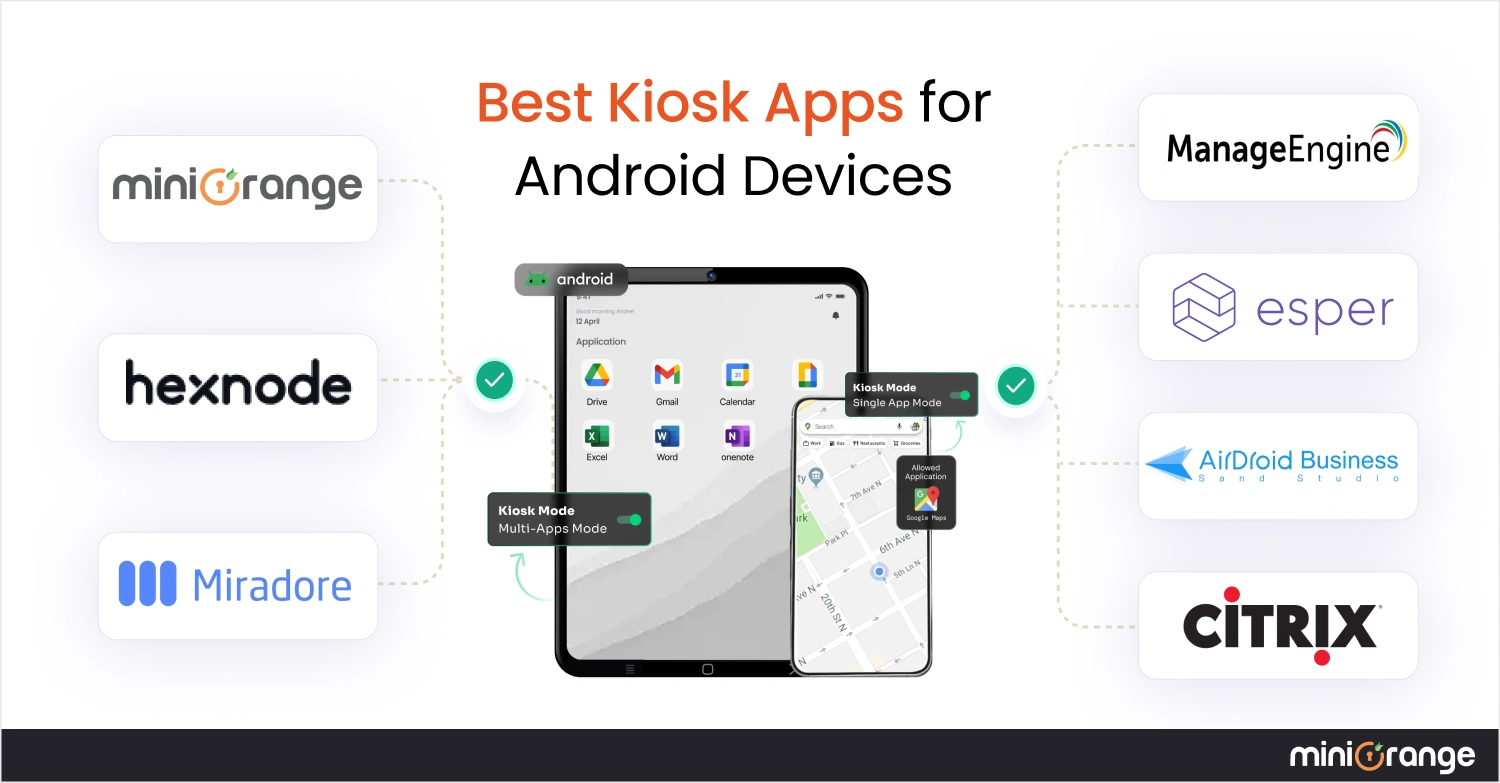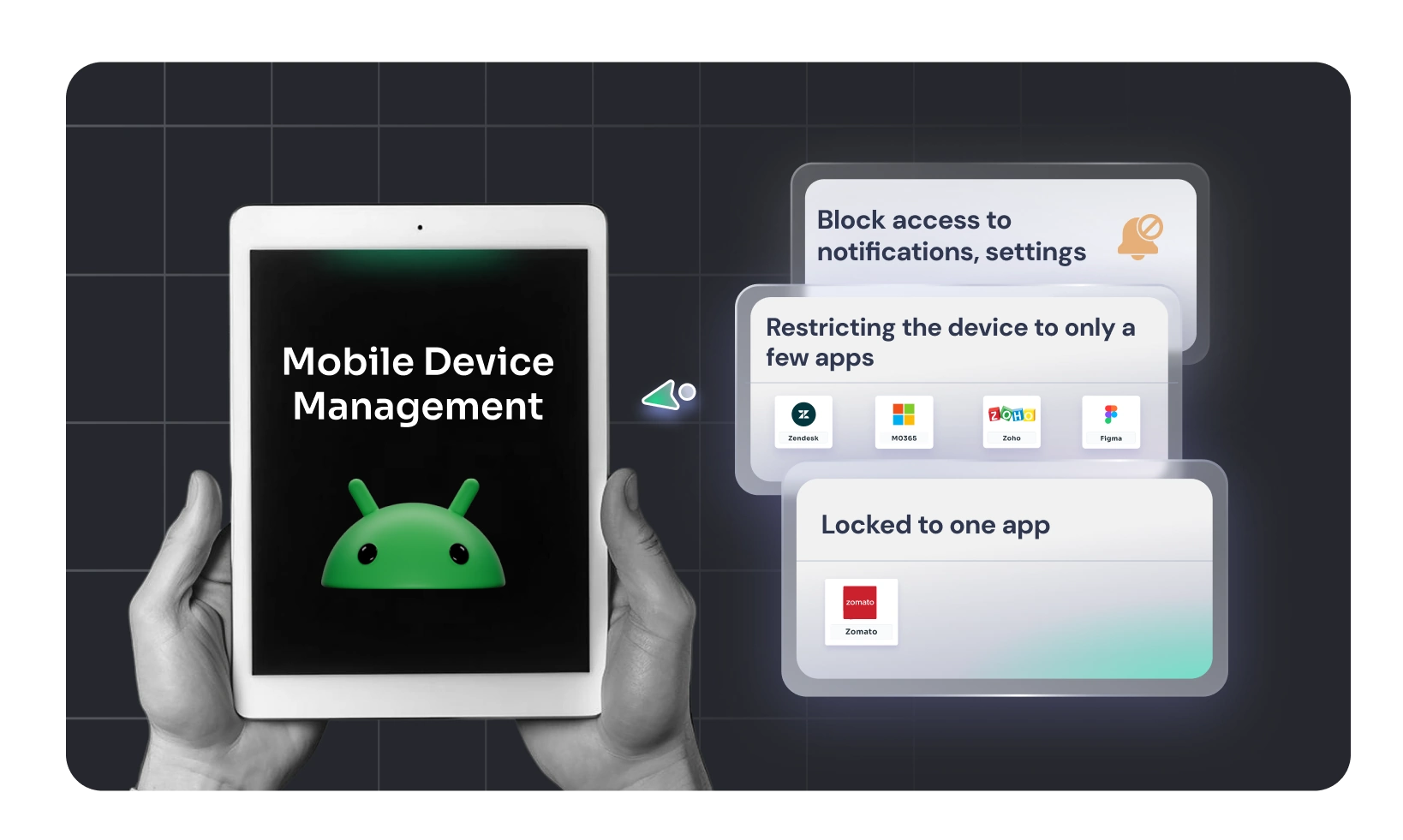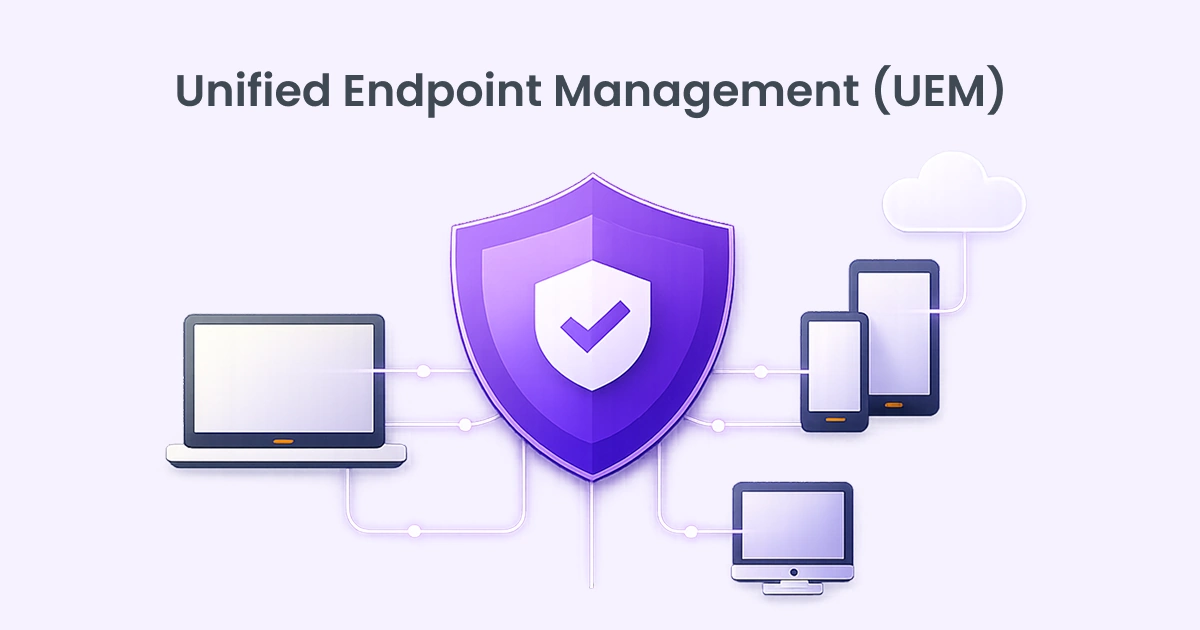Introduction
Let’s admit it—today’s workplaces use Apple devices more than ever. Whether it’s a sales rep using an iPad in the field or a remote employee working from their iPhone, iOS devices are everywhere in business. In fact, 73% of organizations report that the number of Apple products has increased over the last year, driven primarily by employee preference, security, and reliability.
But here’s the challenge: how do IT teams manage these devices, especially when employees are working remotely?
That’s where remote screen-casting solutions could help. And with the Mobile Device Management (MDM), setting up this feature becomes much easier and smoother.
In this blog, we’ll break down what remote screen-casting is, its benefits, and how businesses can use MDM to simplify remote screen-casting.
What is Remote Screen-Casting?
Remote screen-casting is a way to allow the display of a device's screen to be shared with another user or system over a network. In the context of iOS devices, this means that IT administrators can fix issues, train employees, or even check compliance faster and easier.
This capability is particularly valuable in scenarios where physical access to the device is not feasible. For instance, in a remote work environment, employees may encounter technical issues that require immediate attention. With remote screen-casting, IT teams can diagnose and resolve problems swiftly, minimizing downtime and maintaining productivity.
Moreover, remote screen-casting enhances training and onboarding processes by allowing trainers to demonstrate applications and workflows directly on the user's device. This hands-on approach ensures that employees gain a clear understanding of their tools and responsibilities, leading to improved performance and job satisfaction.
5 Reasons to Have Screen-Casting on Company-Owned iOS Devices?
- Simplifies Team Collaboration
Remote screen-casting facilitates better collaboration between departments, especially when dealing with app development, customer support, or quality assurance, by providing a clear view of the Apple device's interface and functionality. - Better IT Support
Remote screen-casting significantly reduces the time required to diagnose and resolve technical issues. Instead of fixing issues verbally, IT teams can directly identify and resolve the problem, supporting faster resolutions and minimizing downtime. - Effective Employee Training
Training new employees becomes more effective when trainers can demonstrate processes directly on the device's screen. This visual approach caters to various learning styles and ensures better retention of information. - Compliance and Monitoring
Businesses with strict compliance requirements, remote screen casting to allow for real-time monitoring of device usage, ensuring adherence to company policies and regulatory standards. - Lower Operations Costs
By reducing the need for on-site IT support and minimizing device downtime, businesses can achieve significant cost savings. Efficient remote support translates to better resource allocation and reduced operational expenses.
How MDM Solutions Simplify iOS Screen-Casting?
IOS Mobile Device Management (MDM) solution can make screen-casting on multiple Apple devices easier at work. With centralized control, MDM platforms take the hassle out of enabling and managing screen-casting on iPhones and iPads. Here are the reasons to deploy Apple iOS MDM solution:
- Centralized Deployment of Screen-Casting Apps
An MDM solution lets IT teams remotely install trusted screen-casting tools like TeamViewer, Zoho Assist, or Splashtop SOS across all iOS work devices in one go. No need for manual installations—everything can be done from the dashboard in minutes. - Instant Remote Access for Support
MDM gives your support team a clear view of every managed device. So, if someone runs into an issue, they don’t need to explain what they see on their screen. Support can simply initiate a remote session and walk them through it visually—right then and there.
According to a report, businesses that implement MDM solutions see a 40% reduction in IT support tickets due to features like simplified device configurations and remote access. - Pre-Configured Permissions and Settings
Screen-casting often requires users to grant access permissions (camera, screen recording, etc.). With MDM, these settings can be pre-approved or enforced, removing friction for employees. - Device Group Management
MDM allows you to segment devices into groups and apply screen-casting policies accordingly, so you’re not over-permissioning every device in the organization.
Learn About: Enroll iOS Device in miniOrange MDM Solution
Final Word
Integrating remote screen-casting capabilities into your business's iOS devices is not just a technological upgrade—it's a strategic enhancement that drives efficiency, compliance, and collaboration. MDM isn’t just a tool for managing apps or enforcing policies—it’s the backbone that makes remote screen-casting practical, secure, and scalable for Apple device environments. Whether you're supporting a remote workforce or training new team members, MDM bridges the gap between control and convenience.
Ready to try Mobile Device Management (MDM) for iOS work devices? Contact us at mdmsupport@xecurify.com today!




Leave a Comment